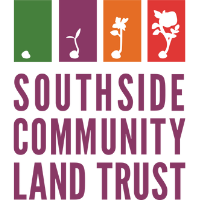
After months of planning and preparation, Southside Community Land Trust has officially broken ground on the Cranston Food Hub at Urban Edge Farm, a transformational project that will strengthen Rhode Island’s local food system from the ground up. This $1.7 million facility represents a crucial investment in the middle of our food supply chain, addressing critical infrastructure gaps that have long limited the growth potential of small-scale, historically underserved farmers in the Providence Metro Area.
The 4,000 square foot facility will serve as a comprehensive post-harvest handling, storage, processing, and distribution hub, dramatically expanding capacity for the 155 direct beneficiaries including SCLT farmers, partner organizations, and other regional producers. The hub will feature modern pack lines for washing and processing, three walk-in humidity-controlled coolers totaling 4,800 cubic feet, and a walk-in freezer – infrastructure that will allow farmers to handle significantly larger volumes while maintaining the highest food safety standards.
This project comes at a critical time for Rhode Island’s agricultural community. With the state having the highest agricultural real estate values in the nation, small farmers face enormous pressure to maximize productivity on limited land. Currently, 72% of Rhode Island farms occupy fewer than 50 acres, and 61% generate less than $10,000 in annual revenue. The new food hub in Cranston will help level the playing field by providing shared infrastructure that individual small farms could never afford on their own.
The impact extends far beyond farm economics. In the communities SCLT serves, up to 60% of families live below the federal poverty level, and food insecurity affects 29% of households statewide, rising to nearly 50% among Black and Latino families. The hub will significantly boost SCLT’s Produce Aggregation Program, which has seen remarkable growth from $3,500 in farmer revenues in 2017 to $190,000 in 2023. This facility will ensure that fresh, culturally familiar produce from local farms can reach thousands more Rhode Islanders, including through SCLT’s innovative VeggieRx program that partners with healthcare providers to prescribe fresh produce to food-insecure patients.
The collaborative nature of this project reflects its broad community impact. Partner organizations including Farm Fresh Rhode Island, Hope & Main, the Hmong United Association of Rhode Island, and numerous individual farms will utilize the facility, creating new market opportunities and strengthening connections throughout the local food network.
Looking ahead, this investment in climate-smart infrastructure positions Rhode Island’s food system for long-term resilience. The facility’s 20-year lifespan means it can evolve alongside changing agricultural needs while supporting SCLT’s expanding farmer training programs and land access initiatives. As extreme weather events and supply chain disruptions continue to threaten food security nationwide, projects like this food hub demonstrate how strategic investments in local infrastructure can create lasting solutions that benefit farmers, consumers, and communities alike.
With construction beginning soon and the facility expected to be operational by summer 2027, the food hub represents more than just a building. It’s a foundation for a more equitable, resilient, and thriving local food system that will serve Rhode Island for generations to come.

